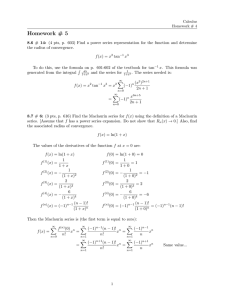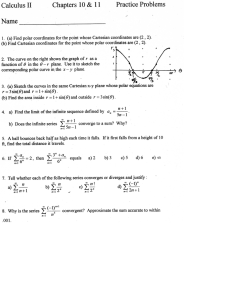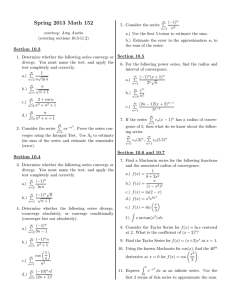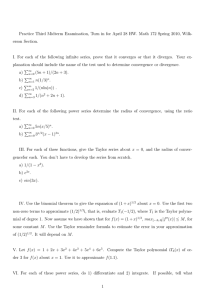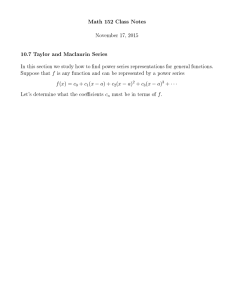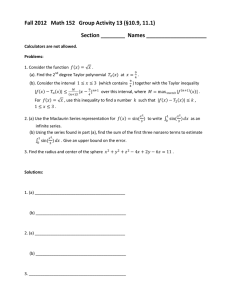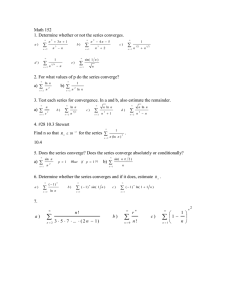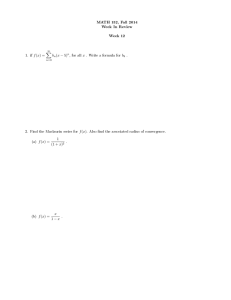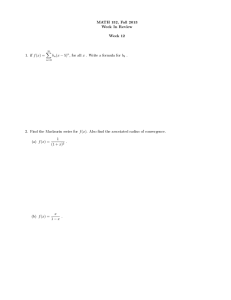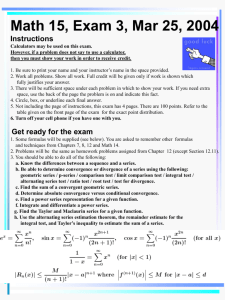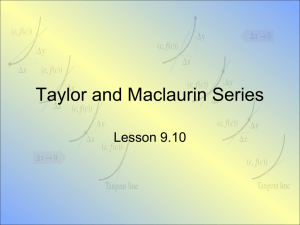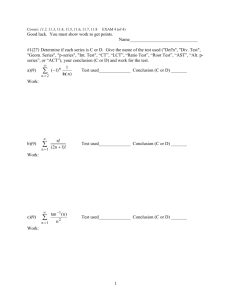Spring 2013 Math 152 Section 10.9
advertisement
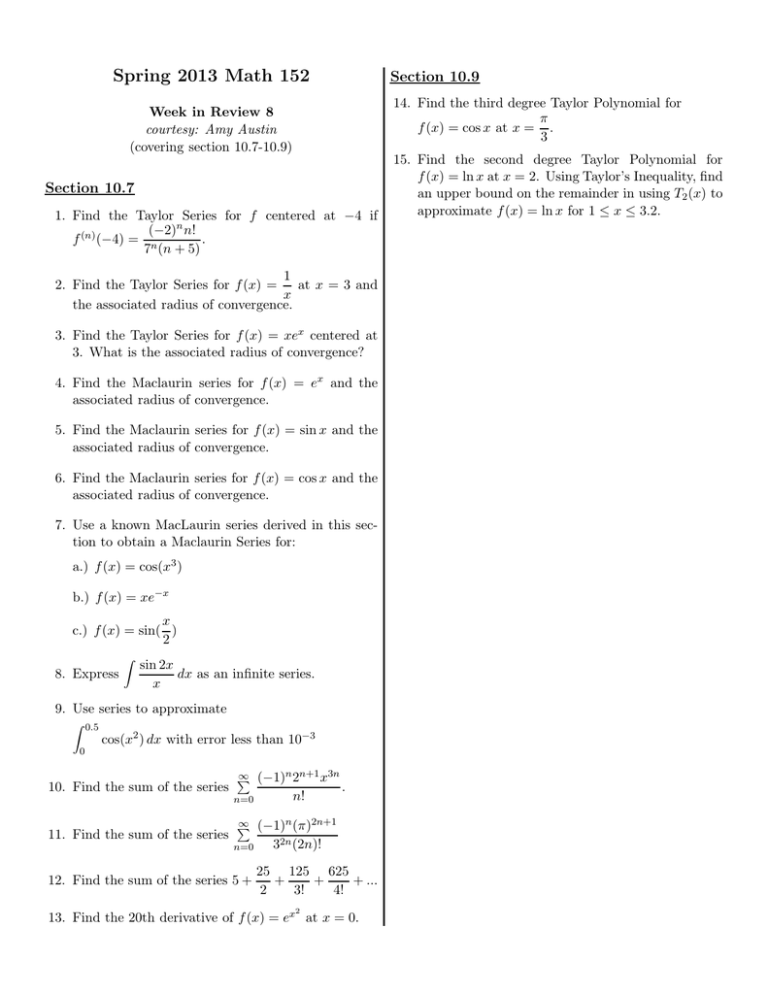
Spring 2013 Math 152 Section 10.9 14. Find the third degree Taylor Polynomial for π f (x) = cos x at x = . 3 Week in Review 8 courtesy: Amy Austin (covering section 10.7-10.9) Section 10.7 1. Find the Taylor Series for f centered at −4 if (−2)n n! f (n) (−4) = n . 7 (n + 5) 1 at x = 3 and 2. Find the Taylor Series for f (x) = x the associated radius of convergence. 3. Find the Taylor Series for f (x) = xex centered at 3. What is the associated radius of convergence? 4. Find the Maclaurin series for f (x) = ex and the associated radius of convergence. 5. Find the Maclaurin series for f (x) = sin x and the associated radius of convergence. 6. Find the Maclaurin series for f (x) = cos x and the associated radius of convergence. 7. Use a known MacLaurin series derived in this section to obtain a Maclaurin Series for: a.) f (x) = cos(x3 ) b.) f (x) = xe−x x c.) f (x) = sin( ) 2 8. Express Z sin 2x dx as an infinite series. x 9. Use series to approximate Z 0.5 cos(x2 ) dx with error less than 10−3 0 10. Find the sum of the series ∞ (−1)n 2n+1 x3n P n=0 11. Find the sum of the series n! . ∞ (−1)n (π)2n+1 P n=0 12. Find the sum of the series 5 + 32n (2n)! 25 125 625 + + + ... 2 3! 4! 2 13. Find the 20th derivative of f (x) = ex at x = 0. 15. Find the second degree Taylor Polynomial for f (x) = ln x at x = 2. Using Taylor’s Inequality, find an upper bound on the remainder in using T2 (x) to approximate f (x) = ln x for 1 ≤ x ≤ 3.2.
